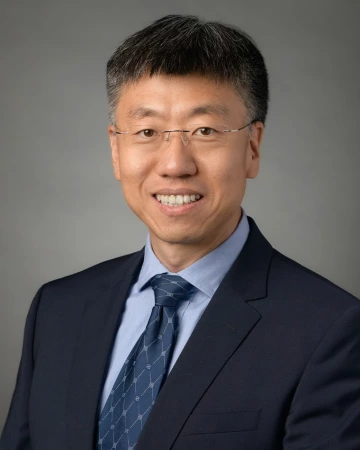When

Thursday, April 10, 2025 at 2:00 PM (MST)
Jian Liu
Associate Professor of Systems and Industrial Engineering
University of Arizona
"High-Dimensional Spatial-Temporal Analytics"
ENGR 301

Abstract: The progress in sensing and information technology has rendered it both reliable and cost-effective to continuously gather data from a multitude of spatially distributed sensors, creating readily accessible Spatial-Temporal (ST) data. The wealth of Spatial-Temporal (ST) information embedded in extensive high-dimensional ST data presents engineers with great opportunities for understanding, monitoring, and controlling engineering processes. However, the intricate ST correlations pose unprecedented challenges for conventional statistical data analysis methods, particularly in tasks such as system monitoring and anomaly detection. These challenges are especially pronounced when ST features of interest or anomalies subtly differ from the normal noisy and even missing background. In this seminar, I will introduce an unsupervised learning approach from a ST decomposition perspective. The high-dimensional ST data, modeled as a tensor with various components, each of which can be represented as a combination of lower-dimensional factors. Without relying on pre-annotated training data, these tensor components can be estimated to reveal latent features, anomalies of interest, or even missing data. A regularization framework is employed to incorporate the domain knowledge and information on the tensor components' intrinsic ST characteristics into the algorithm, enhancing the accuracy and robustness of model estimation. Multiple case studies, including water pipeline burst detection, video segmentation, and structural health monitoring, will be presented to demonstrate the effectiveness of the proposed methods.
Bio: Jian Liu is an associate professor in the Department of Systems and Industrial Engineering at the University of Arizona. Liu’s research specialty is the fusion of multi-source, multi-scale and multilevel information in hierarchical and distributed systems for better system design, operation and maintenance. He is a member of the Institute for Operations Research and Management Science (INFORMS) and a member of the Institute of Industrial and Systems Engineering (IISE). He served as a Council Member of the Quality, Statistics, and Reliability (QSR) Section of INFORMS from 2012 to 2014, the Chair of QSR from 2022 to 2023, a Board Director of the Quality Control and Reliability Engineering (QCRE) Division of IISE from 2013 to 2015, and the President of QCRE from 2016 to 2017. He is an Associate Editor of the IISE Transactions, IEEE Transactions on Automation Science and Engineering, and Journal of Manufacturing Systems. His research has been supported by the National Science Foundation, among others.
